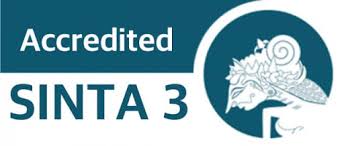Moral Education in Islamic Perspective: A Preventive Solution to the Moral Crisis of Adolescents
DOI:
https://doi.org/10.52366/edusoshum.v5i2.159Abstract
This research aims to analyze Islamic teachings on morality derived from the Qur’an, Hadith, and scholarly interpretations, identify the key factors contributing to the current moral decline among youth, and evaluate how Islamic moral education can effectively address these issues.The moral crisis among adolescents is an increasingly worrying problem, marked by the increase in deviant behavior, such as bullying, promiscuity, and abuse of technology. Moral education in an Islamic perspective offers a preventive solution through instilling the values of faith, kindness, and social responsibility. This article aims to examine the strategic role of Islamic moral education in shaping the character of adolescents with noble character. Using a qualitative approach through a literature study, this article explores the concept of moral education, moral problems of adolescents, and the implementation of moral education in the context of formal and non-formal education. The results of the study show that Islamic moral education that is implemented holistically can strengthen the moral resilience of adolescents.
References
Al-Ghazali, I. (1982). Ihya' Ulumuddin (J. M. A. S. Al-Rahman, Trans.). Beirut: Dar al-Kutub al-Ilmiyyah. Ibnu Miskawayh, A. (1998). Tahdhib al-Akhlaq. Beirut: Dar al-Mashriq.
BKKBN. (2021). Laporan Nasional Remaja dan Perilaku Berisiko. Badan Kependudukan dan Keluarga Berencana Nasional.
Creswell, J. W., & Poth, C. N. (2018). Qualitative Inquiry and Research Design: Choosing Among Five Approaches (4th ed.). SAGE Publications.
Hanum, L. & Sari, D. P. (2022). Peran Pendidikan Agama Islam dalam Membentuk Karakter Siswa di Era Digital. Jurnal Pendidikan Karakter, 12(1), 45–59. https://doi.org/10.21831/jpk.v12i1.45678
KPAI. (2022). Data Kasus Pelanggaran Hak Anak Tahun 2021–2022. Komisi Perlindungan Anak Indonesia.
Krippendorff, K. (2019). Content Analysis: An Introduction to Its Methodology (4th ed.). SAGE Publications.
Lubis, M. (2020). Pendidikan Akhlak dalam Perspektif Al-Ghazali dan Relevansinya dengan Kurikulum Pendidikan Islam. Jurnal Tarbiyatuna, 11(2), 133–145.
Maulana, R. (2023). Strategi Implementasi Pendidikan Akhlak dalam Kurikulum Sekolah Islam. Jurnal Studi Pendidikan Islam, 15(1), 75–89.
Moleong, L. J. (2019). Metodologi Penelitian Kualitatif (Edisi Revisi). Bandung: Remaja Rosdakarya.
Mubarok, H. & Zakiyah, N. (2021). Krisis Moral Remaja dan Strategi Pendidikan Islam sebagai Solusi. Jurnal Al-Tarbawi, 6(1), 23–34. https://doi.org/10.32505/tarbawi.v6i1.1987
Nurfadhilah, A. (2023). Efektivitas Kegiatan Keagamaan dalam Pembentukan Karakter Siswa SMP. Jurnal Pendidikan Islam, 14(1), 55–68. https://doi.org/10.24252/jpi.v14i1.2023
Rahmah, S., Khairunnisa, & Junaidi, M. (2021). Revitalisasi Pendidikan Karakter Melalui Keteladanan Guru. Jurnal Pendidikan Islam, 13(2), 112–125.
Suryana, D. (2020). Pendekatan Kualitatif dalam Studi Islam: Telaah terhadap Peran Nilai dan Konteks. Jurnal Studi Agama dan Masyarakat, 4(1), 45–58.
Zainuddin, M. I., & Kurniawati, N. (2021). Studi Pustaka dalam Penelitian Kualitatif: Pendekatan Teoritis dan Praktis. Jurnal Ilmu Pendidikan Islam, 6(2), 112–123.













